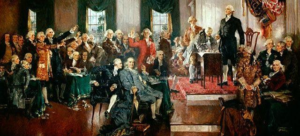
In John 16, Jesus told his followers not to ask him, but rather ask the Father in his name, because, he said, “the Father Himself loves you.” He told them the reason the Father loved them was because, “you have loved me, and have believed that I came out from God.”
Ask Him, because the Father Himself loves you!
Oh God, great Creator, my Father, You are in heaven! Holy, holy is Your name!
Your will and Your purposes are priority on Earth as they are in heaven; may Your will be done!
Please be kind and gracious and merciful to me regarding my requests.
Thank You for life.
Thank You for eternal life.
Thank You for forgiveness.
Oh God, my Father, You are able to do exceeding abundantly above all I ask or think.
My God, You shall supply all I need according to Your riches in glory by Christ Jesus.
My God, You are able to make all grace abound toward me, so that I will always have all sufficiency in all things, so that I can abound to every good work.
As the heavens are higher than the earth, so are Your ways higher than my ways and Your thoughts than my thoughts.
Teach me oh God, lead me, and guide me.
I deserve nothing. I can earn nothing. But by prayer and supplication, thanking You, oh Father, I am letting You know my requests, in Jesus Christ’s name.
Your ears are open unto my prayers, therefore I am casting all my cares upon You because You care for me.
I am coming to speak freely and openly at Your throne room of Grace.
God loves me. God is willing. God is able.
Isaiah 41:10 and 13
Fear thou not; for I am with thee: be not dismayed; for I am thy God: I will strengthen thee; yea, I will help thee; yea, I will uphold thee with the right hand of my righteousness.
For I the LORD thy God will hold thy right hand, saying unto thee, Fear not; I will help thee.
Ask Him, because the Father Himself loves you!
 Giving a gift of God’s Word is always a great idea – in season or out of season! So, I have 7 great holiday gift ideas you might find interesting.
Giving a gift of God’s Word is always a great idea – in season or out of season! So, I have 7 great holiday gift ideas you might find interesting.





